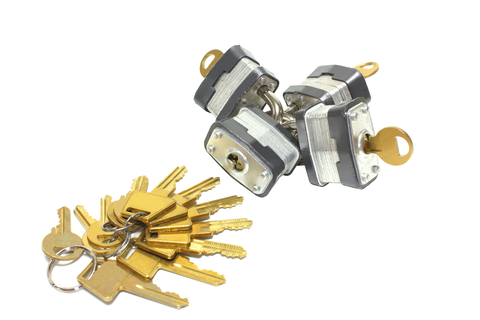Are your locks putting your home insurance at risk? Here’s what every UK homeowner needs to know.
When it comes to securing your home, not all locks are created equal, especially if you want your property to be fully protected and covered by insurance. British Standard locks, particularly those that meet BS3621, are widely recognised by insurers as a benchmark for domestic security. But what exactly are they, and why do insurance companies insist on them?
This guide explains everything you need to know about insurance-approved locks, including how to identify them, why they matter, and what to do if your current locks don’t make the grade.
What Are British Standard Locks?
British Standard locks are those that have been tested and approved to meet the security requirements set by the British Standards Institution (BSI). A lock displaying the BS Kitemark has undergone thorough testing to ensure it can withstand picking, drilling, and attempts at forced entry.
There are several types of British Standard locks, but the most commonly required for home insurance compliance are:
- BS3621 – 5-lever mortice locks for timber doors
- BS8621 – Similar to BS3621 but allows internal keyless egress
- BS10621 – For locks that allow exit only when a key is used from the outside
These locks are specifically designed for external doors, offering a robust first line of defence against break-ins.
Why Are Insurance-Approved Locks So Important?
Most UK insurers require insurance-approved locks—often specifically BS3621—as part of their policy conditions. If your locks don’t meet this standard and you suffer a break-in, your claim could be denied or reduced.
Why many insurers insist on British Standard locks:
- Reliable security – Designed and tested to withstand common break-in methods such as drilling, sawing, or lock snapping.
- Proven performance – Homes fitted with BS3621 locks tend to experience fewer successful burglaries.
- Clear policy terms – Using a recognised standard makes it simpler for insurers to assess and manage risk.
Tip: Review your home insurance policy to see if a certain lock standard is specified, and consider upgrading if necessary.
Types of British Standard Locks (And Where to Use Them)
1. 5 Lever Mortice Deadlock (BS3621)
- Ideal for: Front and back doors
- Features: Operated with a key from both sides, hardened steel components, anti-pick protection
2. Sashlocks
- Ideal for: Doors that also need a latch for handle use
- Insurance-grade versions must have BS3621 certification
3. Euro Cylinder Locks
- Common on uPVC and composite doors
- Look for anti-snap, anti-bump, and BS Kitemark models for full compliance
4. Night Latches
Not all are insurance-approved—only BS3621 versions (often called “high security night latches”) meet the standard
How to Check If Your Lock Is British Standard
To confirm your locks are British Standard compliant:
- Look for the Kitemark: Usually stamped on the faceplate (where the bolt extends from the door edge)
- Check the model code: BS3621, BS8621, or BS10621 should be visible
- Consult a professional: A qualified locksmith can quickly verify compliance
Not sure if your locks are up to scratch? M&L Locksmiths offer free quotes and expert advice on insurance-approved upgrades.
Upgrading to Insurance-Approved Locks
If your current door locks don’t meet British Standard, upgrading isn’t just about insurance. It’s also a smart investment in your safety.
When upgrading, consider:
- Reputable brands: Choose brands who are known for BS-rated products
- Professional fitting: Even the best lock is ineffective if poorly installed
- Police-approved options: Look for Secured by Design accreditation for added peace of mind
Contact M&L Locksmiths for fast, local fitting of insurance-approved locks across your home.
FAQs About British Standard Locks
- Do I really need British Standard locks for insurance?
A. Yes, especially for external doors. Many insurers make it a requirement and may reject claims if non-compliant locks are fitted.
- Are smart locks insurance approved?
A. Only if they are certified to British Standard or Secured by Design. Always check with your insurer before installing smart security.
- Can I install BS3621 locks myself?
A. DIY installation is possible but not recommended. A professional locksmith ensures correct fitting and compliance, protecting your insurance status.

